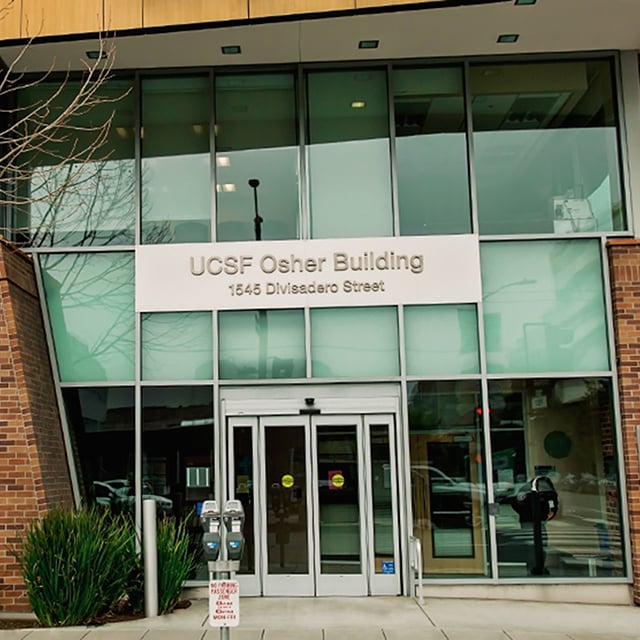Peritoneal Cancer

Overview
What is peritoneal cancer?
Peritoneal cancer, also known as peritoneum cancer, is a rare cancer that develops in the peritoneum. The peritoneum is a thin, delicate sheet that lines the inside wall of the abdomen, covers the uterus, and extends over the bladder and rectum. Peritoneal cancer is very similar to the most common type of ovarian cancer, called epithelial cancer. Because of the similarities, these two types of cancer usually produce the same symptoms and are often treated in the same way.
While peritoneal cancer looks and behaves like ovarian cancer, the ovaries are minimally involved. Women who develop ovarian cancer after having had their ovaries removed, likely have peritoneal cancer. In addition, women who are at an increased risk of developing ovarian cancer, particularly due to the BRCA1 and BRCA2 genetic mutations, are also at increased risk for peritoneum cancer.
Our approach to peritoneal cancer
UCSF offers innovative, compassionate care in a supportive environment to patients with peritoneal cancer. Our team includes gynecologic oncologists, gynecologic cancer surgeons, radiation oncologists and nurses with special training in reproductive cancers. UCSF also offers genetic counseling for families at high risk of developing peritoneal cancer.
We believe that education is a powerful part of the healing process. Our team works with each patient to help them understand their condition and all their treatment options, so we can decide on the best course of action together.
Awards & recognition
-

Among the top hospitals in the nation
-

Best in California and No. 7 in the nation for cancer care
-

Designated comprehensive cancer center
Symptoms of peritoneal cancer
In its earliest stages, symptoms for peritoneal cancer can be difficult to spot. Like ovarian cancer, the condition often does not produce any symptoms until late in its development. When symptoms do develop, they are similar to those of ovarian cancer, and may include:
- Abdominal discomfort and pain, such as gas, indigestion, pressure, swelling, bloating or cramps
- Abnormal bleeding from the vagina
- Frequent urination
- Loss of appetite or feeling full even after a light meal
- Nausea, diarrhea or constipation
- Weight gain or loss with no known reason
Diagnosis of peritoneal cancer
To diagnose peritoneal cancer, your doctor will begin by asking about any symptoms you may have. They will also review your medical history and conduct a thorough physical exam, including a pelvic exam to check for any abnormalities in your uterus, vagina, ovaries, fallopian tubes, bladder and rectum. The doctor may order the following tests:
- Ultrasound. This test uses high-frequency sound waves aimed at the ovaries. The pattern of the echoes they produce creates a picture called a sonogram.
- CA-125 blood test. This test measures the level of CA-125, a tumor marker that is often found in higher-than-normal amounts in the blood of women with ovarian cancer or peritoneal cancer.
- Computed tomography (CT) scan. During this test, a series of detailed pictures of areas inside the body are created by a computer linked to an X-ray machine.
- Lower GI series or barium enema. This is a series of X-rays of the colon and rectum. After an enema, the colon is injected with a solution that shows up on X-rays, making tumors or other abnormal tissue easier to see.
- Biopsy. This involves removing a small tissue sample from the suspected area for examination under a microscope. A pathologist studies the tissue to make a diagnosis.
Treatment of peritoneal cancer
The way we treat peritoneal cancer depends on several factors, including:
- The stage of your cancer, or how advanced it is
- How much your cancer has spread to other parts of the body
- Your general health
You and your doctor will work together to develop the most effective treatment plan that best meets your needs.
Treatment for peritoneal cancer may include combining different approaches like surgery, chemotherapy and supportive care.
Surgery for peritoneal cancer
If it is unclear where the cancer started, or if you have a pelvic mass (growth), we may do exploratory surgery to find, diagnose and remove the tumor from the abdominal lining where the cancer has started to grow.
Chemotherapy for peritoneal cancer
Chemotherapy uses anti-cancer drugs to kill cancer cells. The chemotherapy for peritoneal cancer is usually infused intravenously and the drugs are similar to the ones used for treating ovarian cancer. Depending on the type of chemotherapy drugs used, we can give this treatment weekly or every two to three weeks. In most cases, people receive the treatment on an outpatient basis.
Supportive care for peritoneal cancer
When a patient's cancer has advanced to the point that they are too ill for intensive chemotherapy, they are a candidate for supportive care. Also known as palliative care, this aims to improve patients' quality of life and relieve symptoms such as pain, weight loss, and fluid in the abdomen. A procedure called an abdominal tap can be used to drain fluid from the area between the belly wall and the spine to help patients feel more comfortable.
UCSF Health medical specialists have reviewed this information. It is for educational purposes only and is not intended to replace the advice of your doctor or other health care provider. We encourage you to discuss any questions or concerns you may have with your provider.
Where to get care (4)
Recommended reading
Related clinics (4)

Osher Center for Integrative Health
 2
2






























